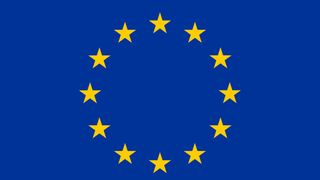EU Boosts News Content Protections

The European Union has adopted a new Copyright Directive that gives news outlets and other content producer more muscle in enforcing their rights over the content they create.
According to the EU, one of the objectives of the directive is to "reinforce the position of creators and right holders to negotiate and be remunerated for the online use of their content by certain user-uploaded content platforms."
Online platforms aggregating content are "considered to be carrying out acts covered by copyright (i.e. performing acts of communication or making available to the public) for which they need to obtain an authorization from the right holders concerned," said EU.
The directive is not an absolute prohibition. It says where they have not obtained licensing agreements with the rightsholders of content, the platforms must make "best efforts to obtain an authorization, (ii) make best efforts to ensure the unavailability of unauthorized content regarding which right holders have provided necessary and relevant information and (iii) act expeditiously to remove any unauthorized content following a notice received and make also their best efforts to prevent future uploads."
There will be a special dispensation for smaller platforms, which must only show best efforts to secure rights and that they moved expeditiously to take down content when notified by rightsholders.
The News Media Alliance had pushed for the directive.
"While European news publishers have no independent right to protect their content online, the Directive will allow news publishers to enforce their rights and to require payment for the use of their content," the alliance said. "It is a market-based approach that enhances the publishers’ negotiation position with those wishing to use their content for their own purposes. The Directive does not affect private or non-commercial use of news content.
Broadcasting & Cable Newsletter
The smarter way to stay on top of broadcasting and cable industry. Sign up below
“This is a great victory for news publishers, who invest considerable time and resources into producing high-quality and trustworthy journalism that keeps our communities informed," said News Media Alliance president David Chavern. "For the first time in Europe, news publishers can now protect their content online through the ability to ask the big tech companies – who up until now have not been stopped from exploiting our content every day – for fair compensation.”
The Computer & Communications Industry Association saw it quite differently.
“Despite recent improvements, the EU Directive falls short of creating a balanced and modern framework for copyright," said Maud Sacquet, senior policy manager, CCIA Europe. "We fear it will harm online innovation and restrict online freedoms in Europe," "We urge Member States to thoroughly assess and try to minimize the consequences of the text when implementing it.”
Fair use fan Public Knowledge was no fan of the directive. “Today is a very sad day for the Open Internet," said Gus Rossi, global policy director. "In adopting the Copyright Directive, the European Parliament has chosen to restrict legitimate online speech, entrench the power of dominant technology, entertainment, and media companies, while making it more difficult for everyone else to access and share trustworthy information."
"There is nothing to celebrate today," said Mozilla in a statement. "With a chance to bring copyright rules into the 21st century the EU institutions have squandered the progress made by innovators and creators to imagine new content and share it with people across the world and have handed the power back to large U.S. owned record labels, film studios and big tech. People online everywhere will feel the impact of this disastrous vote and we fully expect copyright to return to the political stage. Until then we will do our best to minimise the negative impact of this law on Europeans’ internet experience and the ability of European companies to compete in the digital marketplace."
Contributing editor John Eggerton has been an editor and/or writer on media regulation, legislation and policy for over four decades, including covering the FCC, FTC, Congress, the major media trade associations, and the federal courts. In addition to Multichannel News and Broadcasting + Cable, his work has appeared in Radio World, TV Technology, TV Fax, This Week in Consumer Electronics, Variety and the Encyclopedia Britannica.

